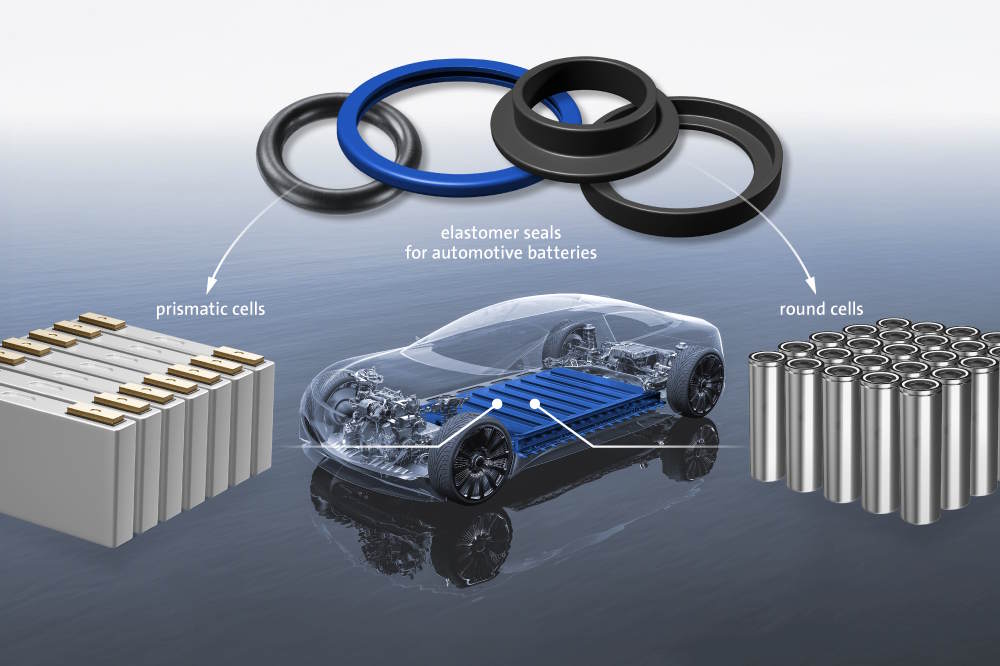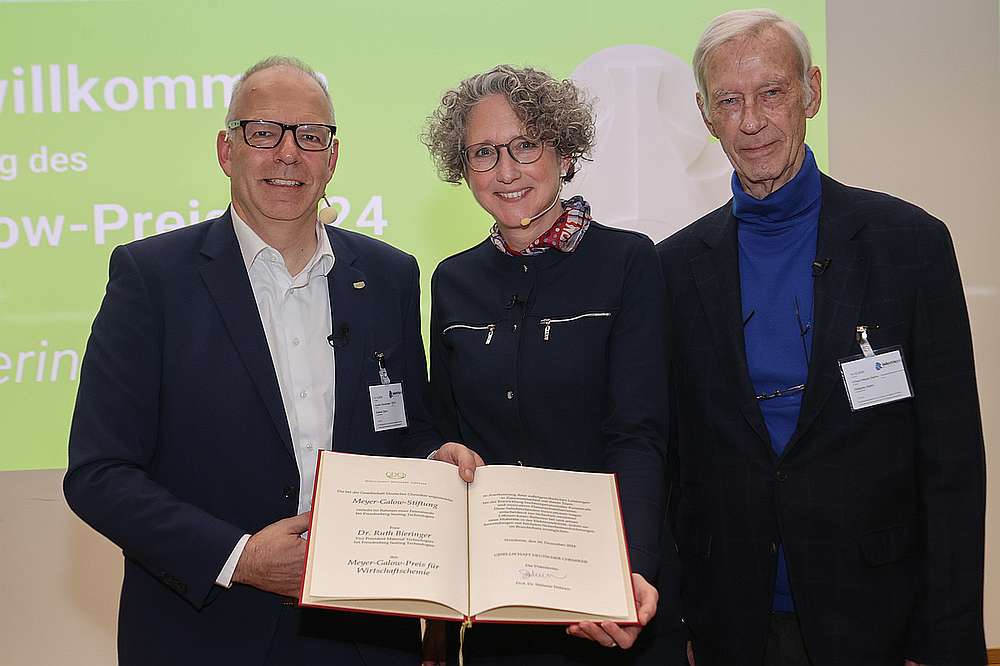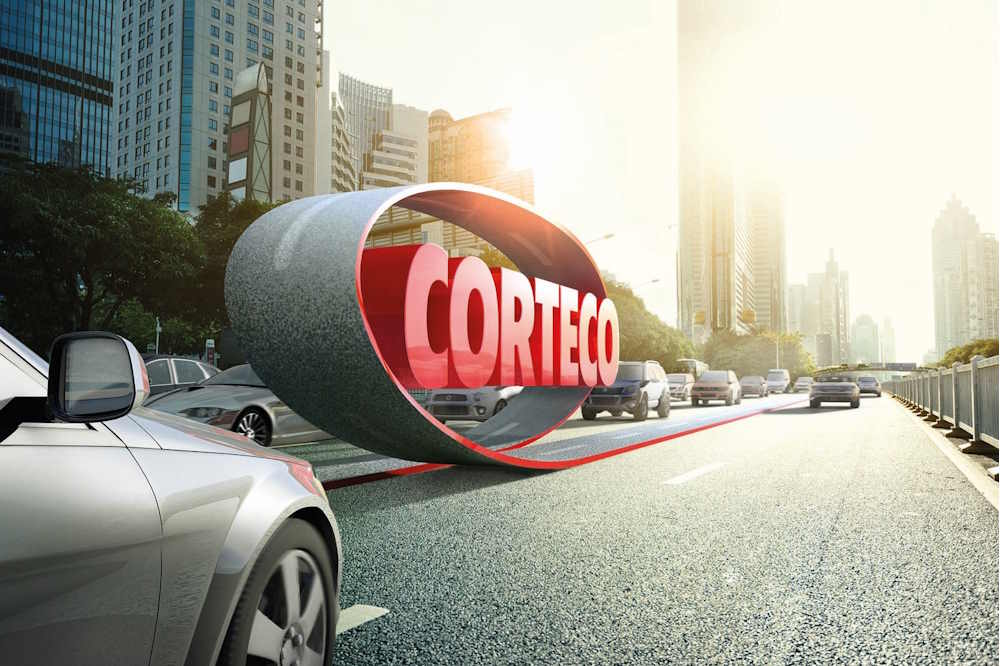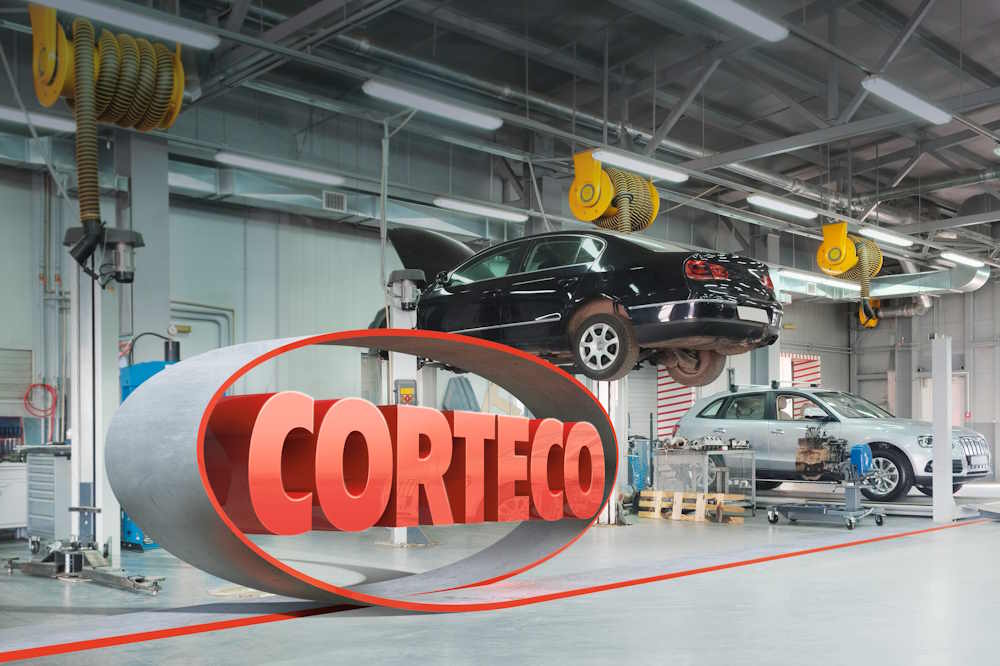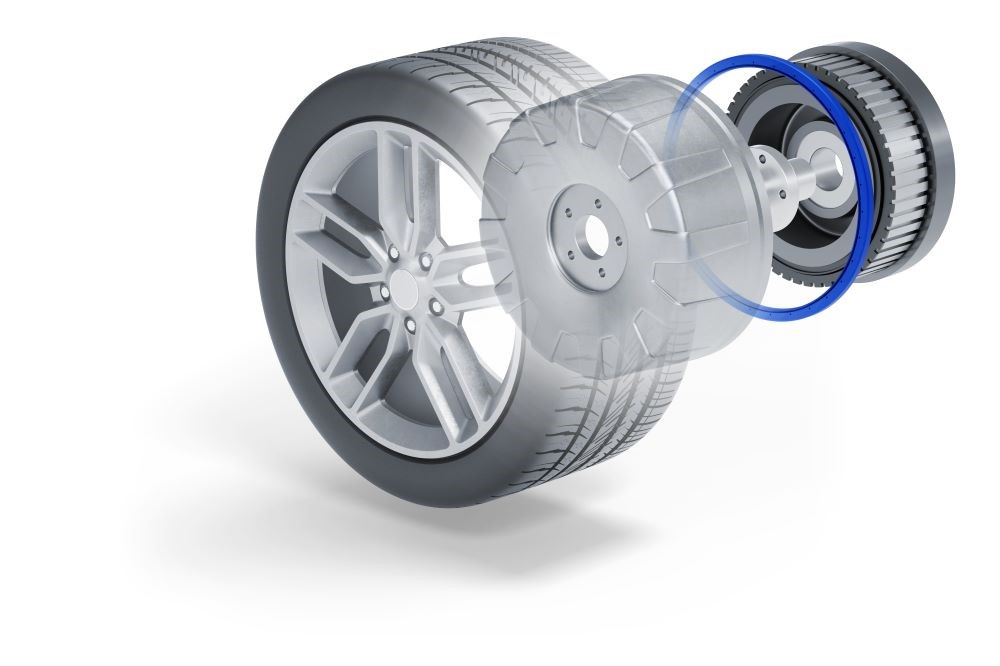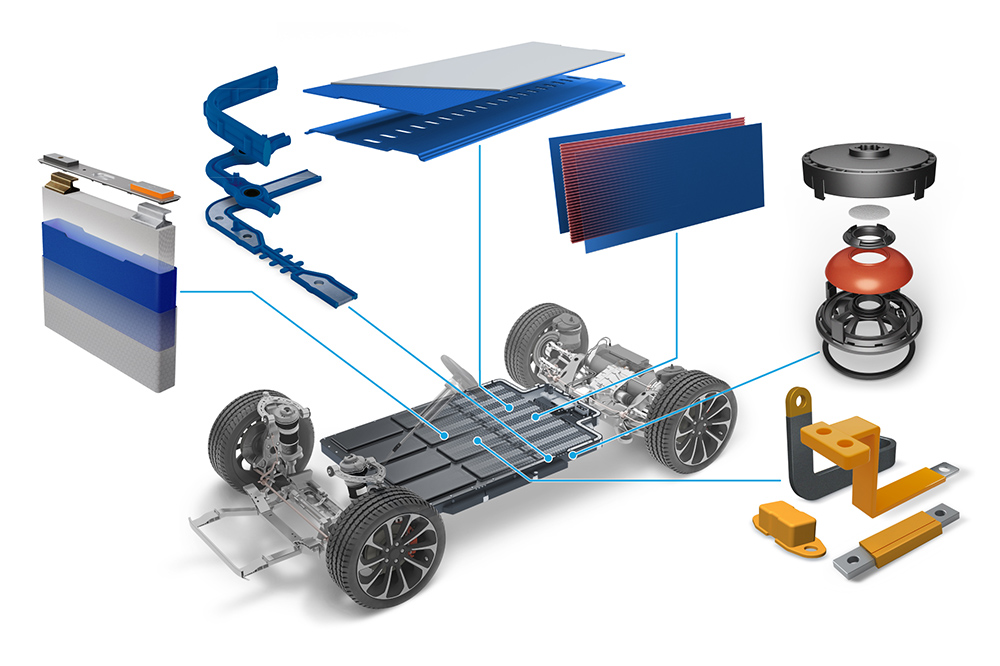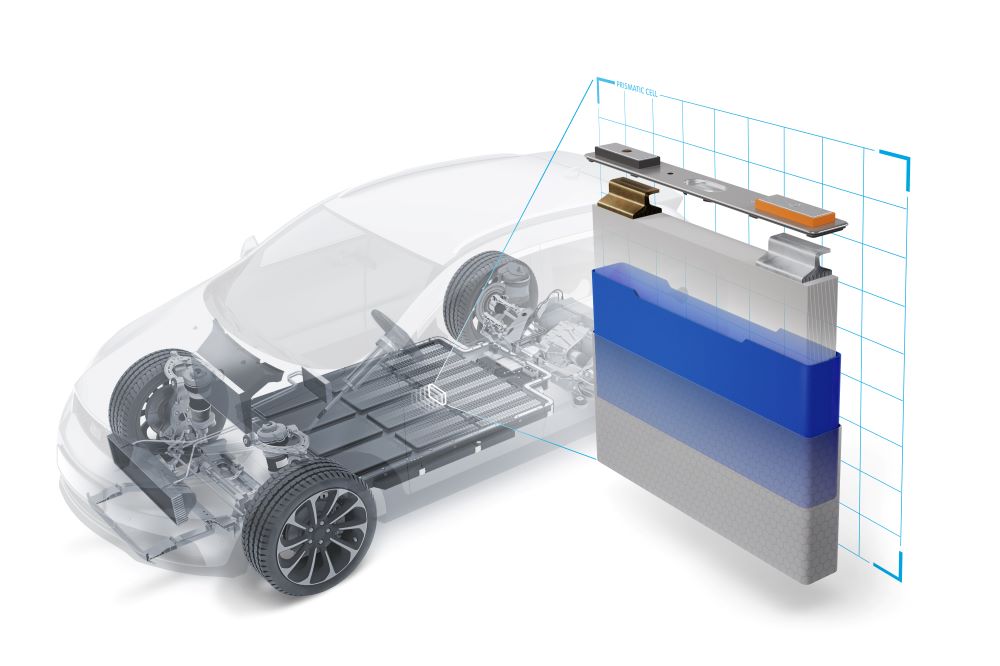Obtain news and background information about sealing technology, get in touch with innovative products – subscribe to the free e-mail newsletter.
21.03.2023
Ultrafast Charging of Electric Cars with Innovative Battery Cooling
More and more electric cars can access fresh energy at fast-charging stations. With a charging power of several hundred kilowatts, such a station can replenish a battery to 80 percent within much less than a half hour, for example. The amount of energy flowing into the battery is two or three times higher than when the direction is reversed and energy is released, even under high-performance conditions – for example, when an electric sports car drives on the Daytona International Speedway. As a result, the battery heats up considerably during this supercharging. This can have a negative impact on its power consumption and service life, among other things, if the cooling system is not up to par. Conventional liquid cooling systems that chill entire battery cell systems from the outside are pushed to their limits. That is why automotive manufacturers are increasingly focusing their development on an innovative liquid cooling system that embeds the cells and their electrical arresters in the cooling medium (battery immersion cooling): The medium flows directly around the individual cells and effectively dissipates the released heat.
Analyzing the suitability of polymer materials for battery immersion cooling
The cooling media used in these kinds of systems have different chemical properties than those in other prevalent media to date. Their direct cell contact, for example, requires electrical insulation. Vehicle manufacturers are examining several partially innovative substance classes of cooling media with vastly different chemical properties.
As essential components for such cooling systems, sealing elements must have chemical properties suitable for the cooling media. This is also true for components such as fasteners, cell spacers and media storage units. For this reason, and to obtain a broad database for specific customer inquiries, the experts in the Material Predevelopment department at Freudenberg Sealing Technologies performed a comprehensive study to analyze the suitability of polymer materials for media used in immersion cooling systems.
The materials relevant to the company were exposed to various fluids. The tests included isoparaffinic oils and ester-based oils, for example, which are specified and widely used for direct battery cooling. In addition to the most conventional fluids, the materials experts also examined the types currently being worked on by the development departments of fluid manufacturers.
Reciprocal effects of materials and fluids
“Depending on the medium, the findings were certainly surprising. The behavior of some new types of fluids differs considerably from that of classic fluids. Nevertheless, we were able to identify suitable materials,” says Materials Developer Dr. Tobias Möller. “Our key questions were: What kind of swelling do the fluids cause in the polymer materials? And conversely, do the materials affect the fluids? The test conditions were challenging.”
Standardized test specimens consisting of the polymer materials were immersed in the fluids for a defined period. To take long-term effects into account and speed up the immersion, the temperature was much higher than is usual and desired for battery systems. The experts then determined the physical key properties of the test specimens that are crucial for the full functionality of a seal over its entire service life, such as volume, weight, recovery behavior, elongation at break and hardness.
“The study provided great clarity. Now we have a comprehensive overview of how the tested polymer materials behave in typical cooling circuits. This is an excellent foundation for the development of future series seals and spacer elements,” concludes Dr. Boris Traber, Manager of the company’s global Materials Predevelopment. “Now we also know more details about the fluids. Overall, Freudenberg Sealing Technologies is able to provide substantiated answers to specific customer inquiries and, as usual, can also supply reliable products for this new cooling technology.” He notes that the dynamics in the automotive market have been palpable for a long time: The company is increasingly contacted about immersion cooling for battery systems.
Ulrike Reich
Head of Media Relations & Internal Communications
Telephone: + 49 (0) 6201 960 5713
ulrike.reich@fst.com chevron_rightDownload Press Release
Download Images
News Service
You can subscribe to the Freudenberg Sealing Technologies news alert service, bringing you the news as soon as they are published. You can always unsubscribe from this service.
Subscribe now! chevron_rightFurther Articles With These Taggings

News Service
You can subscribe to the Freudenberg Sealing Technologies news alert service, bringing you the news as soon as they are published. You can always unsubscribe from this service.
Subscribe now!

